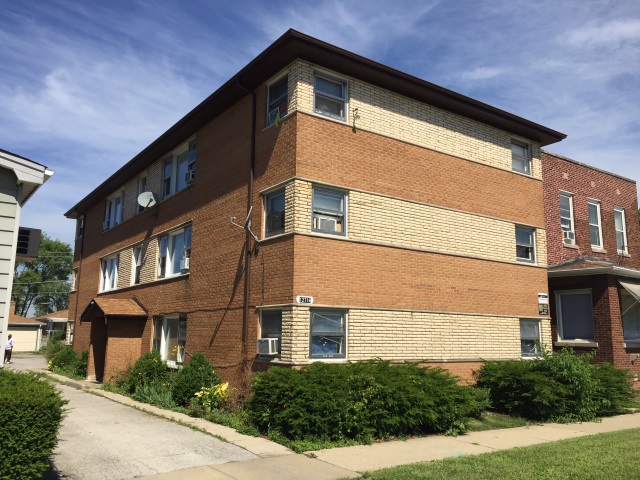Hi all,
As you know, we are writing some articles for the REIN Life Magazine.
Here is our second article, in a series of three, on our US real estate investments adventures.
Check it out and let us know if you would like to know how can YOU get involved in those deals in the future. You will be surprised how simple it is…
Click Here to open the REIN Life Magazine or read it below:
OUR REAL ESTATE “HOME RUN” – COVERING THE FOUR BASES
My wife and I hit our home run between March 2014 to July 2016. However, our story starts a couple of years earlier in 2012.
After refinancing our Florida condos, we had some cash that we wanted to further invest in real estate. We wanted to start investing in multifamily apartment buildings but didn’t know anything about this segment. We were looking for a way to educate ourselves on this type of investment and found a coaching program that focused exactly on that.
Step 1: Set Your Criteria
The first step was looking for an attractive market to invest in. We set our parameters and started to look for that market. As we were looking for a long-term investment, we established the following criteria for the market:
- Size: At least one million residents an up
- Economy: Diverse
- Inventory: High
- Prices: Low with the potential to appreciate
After considering several markets in the US we decided to focus on the Chicagoland market. Now that we had identified a market, the second task was to start building the team that would enable us to operate in that market. We needed some great real estate brokers (or agents), an attorney, inspector, GC (general contractor) and property manager. Building your power team is a key factor in your real estate investments success. You must select your team members carefully as every one of them will have a great impact on your business and could potentially make or break your business.
Step 2: Research Real Estate Agents
We started by contacting over 20 different real estate agents and shared our strategy and goals. We explained what we are looking for in terms of property size and returns. In parallel, we started to do some online research on the different neighbourhoods in Chicago and looked at some statistics to eliminate some sub-markets that didn’t fit our criteria due to high crime rates, low incomes and high poverty rates. Very quickly, we could tell which of the real estate agents got what we were looking for and would be a fit as a long-term partner, because they would focus on helping us meet our goals. They weren’t in it for a fast transaction. The agents we selected have a great knowledge of the market and can refer are able to refer us to other professionals that we were looking for like property managers, general contractors, etc.
Step 3: Find the Right Property Manager
One of the biggest challenges as a real estate investors is to choose the right property manager. The property manager will have the greatest impact on your investment and could make your property soar on the waves of success or could bring it down and crash it to the ground. We have witnessed both during our career and learned a lot about how to select a good property manager. When we go through the selection process for a property manager, we interview candidates and take them through a questionnaire that we have developed over the years. Here are some of the main items we go through with them in this interview:
- Their experience in the sub-market we invest in: how many units do they manage, for how long, what is the vacancy rate, etc.?
- What is included in their service: on top of the obvious, are unit turnovers included in the service (managing the contractors), are lease renewals included (and if not, what would be the charge), and how much are they charging for new leases?
- How are they charging for their maintenance staff? Hourly? Per service call? Are they making any profits on service calls?
The most important thing is to monitor the property manager closely. If the property manager is not performing to the standard you expect, do not hesitate to fire that person and move on. Otherwise, too much damage can be done.
Always make sure that you have the option to release the property manager in the contract based on unsatisfactory performance. Have criteria that define an unsatisfactory performance so that there is no grey area. This is not to say that you should fire your property manager after only a couple of months or if they have made one mistake; all we are saying is that if you need fire your property manager, make sure the action is backed up by your contract.
We usually select our team members by getting referrals from others. We got referrals from our real estate agents, lenders, attorney etc. However, even with a referral, you still need to do your due diligence.
Step 4: Do Your Due Diligence
We have started our journey in the Chicago market in August 2012 and it wasn’t until March 2013 when we have closed on our first property there.
Our first property was a six-unit building which was an REO (foreclosed) from the bank. We purchased the property for US$215,000 and got a credit of $20,000 to replace the roof and the boiler. The bank was willing to lend us 75% and we put down close to $60,000 which left us some funds to renovate some minor items that needed attention. With the $20,000 credit, we replaced the roof and changed the boiler and even had some funds left over.
During the acquisition process, we met with some very good professionals whose services we continue to use to the day.
The relationships we have built with the professionals we worked with on this acquisition paved the way for our “home-run” acquisition which started a year later while we have been in Orlando for our family vacation.







